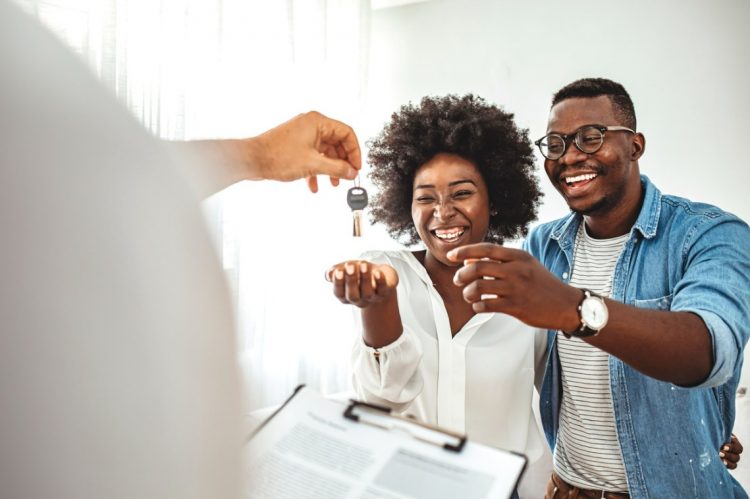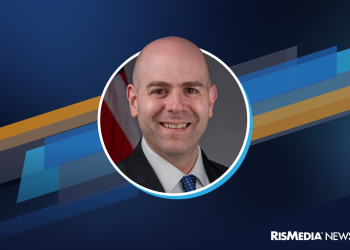Minority homeownership—specifically the state of Black homeownership—has been an ever-present topic of conversation in the real estate sphere for years. Beyond the current common challenges of homebuying, Black homebuyers are faced with hurdles created from systemic issues within the housing market and other facets of the U.S.
While there has been definite improvement over the years as some in the industry weave change, the data shows that more real estate leaders and professionals need to put in more work.
The rate of Black homeownership reached 44% in 2023, according to NAR’s 2023 Snapshot of Race and Home Buying in America. While being close to 50% sounds as if it is an accomplishment, this number is less than half a percentage point up from 2011’s rate of 43.6%, and lags well behind Hispanic Americans (50.6%), Asian Americans (62.8%) and white Americans (72.7%).
In NAR’s even more recent 2024 Snapshot of Race and Home Buying in America, research found that the homeownership gap between Black and white Americans has widened from 27% to 28% since 2012.
Black people make up an average of 14.99% of the population across the nation’s 50 largest metros, but they only own an average of 10.15% of owner-occupied homes, as stated in a recent LendingTree study. For comparison, white people across the nation’s 50 largest metros account for an average of 57.82% of the population, yet they own an average of 69.01% of owner-occupied houses.
“Buying a house can be a challenging experience for many, regardless of their racial or ethnic identity. Nonetheless, the data is clear that in the face of systematic issues, such as having fewer opportunities to access credit and less generational wealth, Black Americans are especially likely to struggle when it comes to homebuying,” said Jacob Channel, LendingTree’s senior economist and author of the report.
Jemila Winsey—broker/owner of ERA Legacy Living and a Black real estate professional—commented that in her experience, “this disparity is definitely out there.”
Winsey has worked extensively with the National Associations of Real Estate Brokers (NAREB), an organization for Black real estate professionals working to increase the population of Black REALTORS®—referred to as Realtists—and Black homeowners.
“The lack of Black representation in the industry is also a barrier to homeownership, because only 6% of real estate professionals are Black,” explained Winsey. “When you’re looking at a demographic of people who are unfamiliar with the information and are not represented fully from a community standpoint, you will also see some disparity there.”
In her work with NAREB, Winsey helped to create the NAREB Top 100—a ranking list of the top 100 Black real estate professionals—with the intention that showcasing Black REALTORS®’ success will help to increase the number of Black real estate professionals and provide more representation.
“In 2021, I helped launch the top 20 Black real estate professionals rankings, and the whole goal was to celebrate Black excellence,” said Winsey. “That parlayed into us making that a regional for Texas Top 20, and then last year I was given the opportunity to launch the very first NAREB Top 100.
“My mission with this is all tied to homeownership,” she continued. “I think that public recognition of Black REALTORS® gives other Black REALTORS® or aspiring REALTORS® the ability to step out of the shadows, identify themselves, show themselves as subject matter experts, and expose themselves to folks who really want Black representation when it comes to buying their homes.”
Besides representation, a big hurdle for Black Americans looking to reach homeownership is down payments. Jessica Lautz, NAR’s deputy chief economist and vice president of research, explained that Black Americans are more cost-burdened when it comes to renting, preventing them from building the funds needed to cover a down payment and closing costs.
“Even among successful homebuyers, minorities have a higher amount of student debt—the biggest expense that holds back saving, along with rent,” Lautz continued.
Winsey agreed with this sentiment, stating that, “The truth of the matter is that outside of the fact that Black homeownership is at a big disparity level, a lot of it has to stem with lack of access to the capital and also lack of mortgage financing available as well.”
As Winsey expressed, another part of this affordability issue comes down to financing. Even if Black homebuyers can find the money for down payments and closing costs, mortgages are not always as available to them as they should be.
A LendingTree study on Black mortgage denials found that on average, 14.44% of Black homebuyers are denied a mortgage—5.30 percentage points higher than the average denial rate of 9.14% across the overall population.
“There’s several things that have been basically affecting (Black homeownership), but the biggest ones are mortgages and access to financing, because ultimately that’s where it all stems from,” Winsey continued.
The question stands: what can the real estate industry do to change the fate of Black homebuyers?
Winsey said she thinks there’s a few ways change can grow, from the industry executive/leader level down to the agents on the ground with homebuyers.
At the upper leadership level, Winsey said that executives can expand the work of NAREB’s Top 100 and other rankings by “shining a light on diverse groups from a leadership standpoint, from an industry standpoint, from a production standpoint,” to continue to work on increasing industry representation of Black REALTORS®.
Building programs to increase affordability and mortgage access is another path Winsey said industry leadership can pursue.
“In Houston, we have the Houston Houston Community Land Trust, which provides a path for home ownership for, and it’s not just for the Black communities, it’s for anyone who cannot afford a home because of the price of land or because they are not able to qualify for a mortgage,” she explained. “These programs, just like in Houston and many major cities, provide the ability for (Black homebuyers) to get down payment assistance and things like that.”
When looking at leaders further down the chain of command, Winsey said that “For brokers to help break the cycle, I believe that we need to implement targeted recruiting and mentorship programs.
“This should not only open up doors for leadership roles and recognitions, but really focus on and being intentional on looking at underrepresented groups. That could really help diversify some of these socioeconomic experiences,” she continued. “If we are able to create inclusive programs, we do have a chance of leveling the playing field and really paving the way for some real success.”
From an agent standpoint, Winsey thinks that “we need to be very intentional about diversifying our pool of clients, and then creating a lot more awareness.
“It shouldn’t be just the Black REALTORS® serving the Black homeowner,” she continued. “Everyone, I would say, has some type of bias, and that’s okay. I think that if we put some of that bias away and be open to really taking the time to understand the needs of people in certain diverse groups, it would in itself inherently open up more opportunity.”
In her own brokerage, Winsey and her agents are working to educate Black homebuyers more as well.
“One of our top agents, she does weekly home-buyer seminars to educate people on how they can get up to $150,000 towards the purchase of a home. It’s about educating folks that you don’t have to have the traditional cookie-cutter mortgage (aka 20% down) and all that stuff to buy a home,” said Winsey. “Education is a big key. I think as people are aware of what programs are available to them as they feel comfortable with representation, it’s something that they would be, we are finding that folks are opening up asking more questions and getting really interested in the process.”
While Winsey thinks that “it’s going to take a lot of creativity and working with developers and builders, mortgage folks to be able to resolve this issue,” it’s a must to work to increase Black homeownership and change the tides of real estate racial disparities.”












